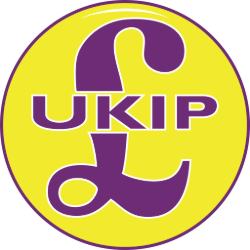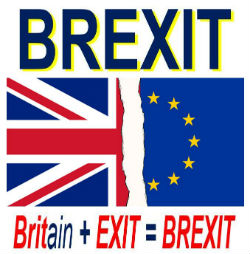What exactly is it that drives the EU ? We know that the greed and material self-interest of our political class is a major factor; it is even possible that some have begun to believe their own propaganda, that its all about promoting trade and economic growth. But any ‘project’ of the scale and ambition of the EU must have more behind it; it must have a belief.
In 2014, to mark the centenary of the First World War, speaker after speaker in the EU ‘parliament’ stood up in true Soviet style, to proclaim nation states as the cause of all ills, and the EU as the cornerstone of peace in Europe. In so doing, they were mirroring their political leaders:
The EU and the European project has been the peacemaker for over half a century. Peace was the overarching objective of European integration from day one. In the minds of Jean Monnet, Robert Schumann, Konrad Adenauer, Alcide de Gasperi and many others, the idea was to make it through economic integration. But economic integration was always a means to an end; Peace. We must never stop recalling to our citizens that peace is and will remain, not the only one, but Europe’s most fundamental raison d’etre’ (EU Commission President, Manuel Barroso, 2009).
‘We have a historical obligation to protect by all means, Europe’s unification process begun by our forefathers after centuries of hatred and blood spill. None of us can foresee what the consequences would be if we were to fail … ’ (Angela Merkel, 2011)
At the heart of the EU is the belief that nations are the main cause of war. Remove nation states and you remove the causes of war. Such thinking lay behind the ‘European Movement’ of the 1920’s, whose founders outlook was scarred by the terrible slaughter of the First World War trenches. It continues to grip the minds of many idealistic baby boomers who grew up in the 1960’s and 1970‘s, to whom nationalism is a dirty word and who now form the political elite in most European countries. Their beliefs stem from a false interpretation of 20th century history. To realise just how wrong they are, we must take a fresh look at the last century and the role played by ‘nasty old nationalism‘.
Nationalist sentiment certainly fuelled the public mood that helped to sustain and prolong the First World War (especially in the West), but it was only the symptom. The cause of the war was due to a much deeper issue, the irreconcilable clash of imperialist ambitions; between Britain and Germany, both at sea and in overseas empires; between German and Russian expansionism in Eastern Europe, and Austria-Hungary and Russia in the Balkans. The war was started and prolonged by a failure of diplomacy on all sides, but once begun it had to be fought to its end to prevent German hegemony over the continent. In so doing, it gained freedom for a host of new nations in Eastern Europe, born in the aftermath of the Allied victory in 1918. Ironically, just as Jean Monnet’s dream was in its infancy, the newly freed peoples of Central and Eastern Europe were already voting with their feet for national self-determination.
The flawed peace treaties of 1918 laid the ground for the resurgence of an even more dangerous Germany. It is often argued today that the Nazis were the ultimate manifestation of nationalism; a view which leads many to think any form of nationalism is an inherently bad thing. But although he understood all too well how to pervert a once noble German patriotism into something truly evil, Hitler was principally a German Chauvinist; the 19th century romantic turned bad. If he had possessed even a glimmer of understanding of other nations, he could not have perpetrated such wicked atrocities (including those against the people of his adopted country). He also had many pan-national socialist ideas (something modern day leftists don’t like to mention), and combined them with Mussolini’s fascist blueprint for the overarching role of the corporate business state; all of which have eerie echoes of the EU today.
More than anything though, Nazi ideology was a direct descendant of 19th century Marxist and Darwinian ideas about the perpetual struggle of species. Whereas Marx saw class as being the driving force behind human conflict, to Hitler it was race. Far from being caused by nationalism, World War Two was caused by a malignant, hate filled political ideology.
For those brave people fighting Nazi Germany, the war was essentially a war of national survival. It could not have been fought and won without the innate patriotism of people in all the nations that Hitler attempted to conquer. Much like Napoleon before him, it was Hitler’s complete failure to understand the universal appeal of nationalism that lead to the destruction of his regime. This enabled Stalin (an ideological enemy of nationalism), to cynically exploit Russian nationalism to save the Soviet regime, and use it as a motive force to roll back Hitler’s armies.
The 1945 settlement, the subsequent Cold War, the development of NATO and the collective horror at the cataclysmic nature of the two world wars, effectively ended any likelihood of further war between Europe’s nations over territory. So by the time Monnet and his disciples finally got into the driving seat in the 1950’s, the idea of European Union as a necessity for peace was completely outdated; a 1920’s ’solution’ to a non-problem. That didn’t stop them from pushing ahead though, and ever since their project has been advanced by just about every means possible.
Just as nationalism saved Europe in the Second World War, it was nationalism that ultimately won the Cold War and killed off the Soviet Communist empire in Eastern Europe. All the Soviet leaders knew that nationalism was an effective antidote to socialist totalitarianism, and therefore they did everything in their power to try to eradicate it in the lands that they controlled. National sentiment is a hardy plant however. In all the countries of Eastern Europe the seeds remained suspended in the permafrost of Soviet rule, only to spring dramatically to life in 1989 once the people had lost their fear. In the Baltic states, nations which had seemingly been airbrushed from history altogether, were miraculously renewed. People could hardly contain their joy as their nation’s ancient flags were raised once again and the impossible 50 year long dream of independence suddenly came true.
By the time the Berlin Wall came down and Eastern Europe’s nations joined the West in freedom and democracy, all that was needed was for Europe’s national leaders to sit down and work out some sensible bilateral arrangements between their countries and everybody could live happily ever after. As Nigel Farage has often said, history shows that parliamentary democracies do not go to war with one another.
Just at this moment of golden opportunity for Europe, Western Europe’s leaders were heading on a journey in precisely the opposite direction, perversely putting the capstone on Monnet’s 70 year-old dream and signing the Maastricht Treaty to end national democracy in Europe. Very soon they were joined by many former Communists from the eastern bloc, who had somehow re-invented themselves as ’Social Democrats’ and who were all too familiar with the workings of an anti-democratic superstate. Which brings us to where we are today.
The 20th century was an age of failed utopian ideologies. Unlike Communism and Fascism though, the EU is still very much with us and its malign effects are felt across the entire continent. Far from being a good idea that didn’t quite work as planned, the EU as it is today is exactly what Monnet and others planned in the 1920‘s. It was a flawed idea then and it is a thoroughly bad idea now. Like many utopian movements, it has an innate tendency to exploit the some of the most noble impulses in human nature and turn them into something bad. It is a typically 1920’s big state ‘solution’ welded to a 1950’s model of centralised business corporatism. It is hard to imagine a less suitable model if the UK and European countries are to prosper in the 21st Century. Given the fanaticism of its adherents, its dismantling is likely to be both protracted and troublesome.
Recent events have strengthened the argument that war in Europe has been made more, rather than less likely by the EU project. Some of the anti-German bile in southern European countries would have been unthinkable a generation ago, but is understandable in the context of German imposed ‘austerity’ on Greece, Italy, Spain and Portugal, which has destroyed the future for a whole generation of young people. The rise of extremist parties in response to the migrant crisis is an ominous sign, and is a growing crisis entirely of the EU’s own making. And once an emerging power bloc like the EU starts to throw its weight around politically beyond its borders, the world becomes a more dangerous place. The chances of a stray spark igniting a greater conflict (like in 1914) are increased.
The tragedy in the Ukraine is partly the result of a decade of propagandist meddling in their internal politics by agencies of the EU and the USA. Previous rulers may have been far from ideal, but the events of February 2014 in Kiev were nonetheless, a violent coup d’etat encouraged by an expansionist EU against the elected government of a sovereign nation, against which Russia was bound to react. The coup has upset the delicate balance between nationalist and pro-Russian factions in the country, which was necessary following the fall of the USSR to enable Ukraine to gain a semblance of national independence. No-one knows how this particular story will end, although students of Russian history will recognise a familiar pattern beginning to emerge. The EU’s new Cold War with Russia (also being played out in Syria and Turkey) has now made Europe a more dangerous place than at any time since 1945.
The EU has no real desire to control its external borders as mass migration serves its purpose well; weakening national cohesion and accelerating disintegration within each country. Instead of preventing wars between nations, the price of the EU‘s ‘ever greater union’ is far more likely to be civil unrest, chaos and violence within each of its component nations.
The EU’s leaders are also unwilling to learn the lesson of the Yugoslav wars of the 1990’s; artificial federations imposed without any popular mandate (‘false states’) simply do not work. The longer people’s legitimate national aspirations are held under by an undemocratic regime, the greater the chances are that when it does eventually collapse, it will do so in bloodshed. Like the 18thC Bourbons of France’s Ancien Regime, the EU’s leaders ‘forget nothing and they learn nothing’.
So what have we learnt ? The nation state is far from being an ‘empty shell’ (Chancellor Kohl); it is a form of extended family linked by shared bonds of culture, history, language and identity. It is what gives us all a shared sense of belonging; that we are part of something bigger than ourselves; of having responsibilities to others that go beyond our immediate friends and family.
In Britain, despite of the worst efforts of the BBC, our nation’s story remains a predominantly happy one; a history which commands respect and even the admiration of others. Some other countries have been less fortunate. The main drivers of the EU, Germany and France, are motivated in varying degrees by the desire to run away from their recent history. Unless or until, Germany can be at peace with its own history, lay to rest its corrosive sense of national guilt and become a ‘normal’ nation like most others, Europe will never truly be at peace. German led efforts to ‘save‘ Europe by the impositions of the EU will only drag everyone further towards the abyss.
Regrettably human nature being what it, conflict is never likely to be far away. But as the 21st century starts to unfold, we can begin to see that it is pan-national issues such as religious extremism, Western interventionism and tensions caused by ‘false states’ such as IS and the EU, that are going to be the main drivers of future wars. In this context, nations governed by parliamentary democracy are likely to be part of the solution rather than the problem.
Far from causing war, the history of the last century shows that nations with parliamentary democracy are the building blocks of a civilised world; one where mutual respect and understanding between nations can be advanced; a tried and tested internationalism that actually works, unlike the bogus ’one worldism’ currently being propagated by left-wing dreamers and delusional ‘liberals‘. History has shown that the parliamentary nation is an essential bulwark against tyranny and autocratic rule and is the best guarantor of the individual’s liberty, peace and prosperity.


